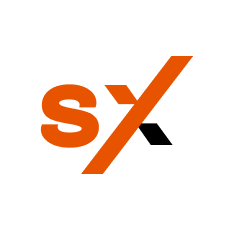
PDF Xpansion SDK News at a Glance
PDF Xpansion SDK 17 released
01.10.2024
With the latest version of the SDK, e-orders (Peppol BIS & Order-X) can be implemented in your software. The current XRechnung standard 3.0 and ZUGFeRD 2.3/FACTUR-X 1.0 are supported.
PDF Xpansion SDK 16 released
01.06.2022
With the latest version of the SDK, export of XRechnung invoices in UN/CEFACT syntax as UBL syntax and signing of PDF documents with third-party solutions or own crypto providers is possible. The current XRechnung standard 3.0 and ZUGFeRD/FACTUR-X are supported.
Support XRechnung 2.1.1
22.10.2021
In the current version 15.1.7, the PDF Xpansion SDK now also supports XRechnung 2.1.1. The corresponding specification is valid from 01.02.2022. From this date, according to the Coordination Office for IT Standards (KoSIT), only this version should be used.
Electronic invoices with signatures and stamps
18.01.2021
Electronic invoices can now be provided with a stamp and signatures. PAdES signatures are also supported: Signing and validation in all conformance levels (B, T, LT and LTA).
PDF Xpansion SDK 15 available from 01.01.2021
28.12.2020
The PDF Xpansion SDK developer tool will be available in version 15 from January. Information and details are available on the product page.
XML invoice visualization
10.12.2020
The software developer tool collection PDF Xpansion SDK offers functionality to create, view, convert and visualize the eInvoicing formats FACTUR-X, ZUGFeRD and XRechnung. Among the methods for these formats, you will find the new feature “Visualize invoice (generate PDF using XML invoice and design template)”. This functionality allows you to build a bridge between the “old school” way of handling invoices on the one hand, and fully digital invoicing processes via XML files on the other hand.
The visualization of the invoice contents is implemented as a PDF file based on a design template. This template is made up of a structure internally defined within the SDK. It can be tailored individually to the client´s specific requirements.
Invoicing parties will then be able to send this PDF file together with the XML file – if sender and recipient agree on this procedure. On the other side of the table, bill-to parties can also create a PDF file on the basis of a received XML file if their ERP/accounting software has the SDK´s visualization feature. The PDF file may then be used by the accounts department to have a representation of the XML file contents readable for humans.
Support of the ZUGFeRD 2.1.1 specification
22.07.2020
At the beginning of July, the Forum elektronische Rechnung Deutschland published ZUGFeRD Specification 2.1.1. This specification is now also supported by PDF Xpansion SDK 14. The specification and with it the SDK now additionally offer a sixth profile: XRechnung. This means that it is now possible to save an XML file created in XRechnung format into PDF/A3 documents and export it from them. With this profile, ZUGFeRD now also directly meets the specific requirements and national (legal) regulations of public administration in Germany. The specifications of the European standard EN16931 are, of course, also fulfilled by ZUGFeRD 2.1.1 without any changes through the corresponding profiles already available.
ZUGFeRD 2.1 Support
11.05.2020
From SDK version 14.2.3 PDF Xpansion SDK supports ZUGFeRD 2.1 specification. Thus the SDK serves the use of ZUGFeRD 1, 2 & 2.1 as well as XRechnung and Factur-X.
The invoice formats contribute to increase the acceptance of electronic invoices and to define a general standard in Europe. The technical specifications are based on the international UN/CEFACT standard “Cross Industry Invoice (CII)” and the ISO standard PDF/A-3. They conform to the European standard EN 16931, which defines the standards and technical rules for electronic invoicing in Europe to ensure interoperability and compliance with legal regulations.
Extension of Digital Signatures
28.11.2019
The new version of PDF Xpansion SDK 14 offers additional features for the implementation (validation and signing process) of digital signatures in PDF files: The SDK now supports the PAdES signature standard (PDF Advanced Electronic Signatures) according to ISO 32000-2 and to ETSI TS 103 172. PAdES signatures are available as levels B (Basic), T (Time), LT (Long-Term-Validation) and LTA (Long-Term Availability and Integrity of Validation).
Time Stamps in Signatures
28.11.2019
Time stamps, according to ISO 32000-2, and to the protocol RFC 3161, can be embedded in all PDF files you generate in your application.
Contact us non-bindingly
Please first confirm the processing of your data to be able to fill out the contact form.
I agree to the processing of my personal data according to the GDPR.
Alternatively you can also send us a message to pdf@soft-xpansion.com.
Subscribe to newsletter for developers
Please first confirm the processing of your data and activate the checkbox below for newsletter registration.
I agree to the processing of my personal data according to the GDPR.

